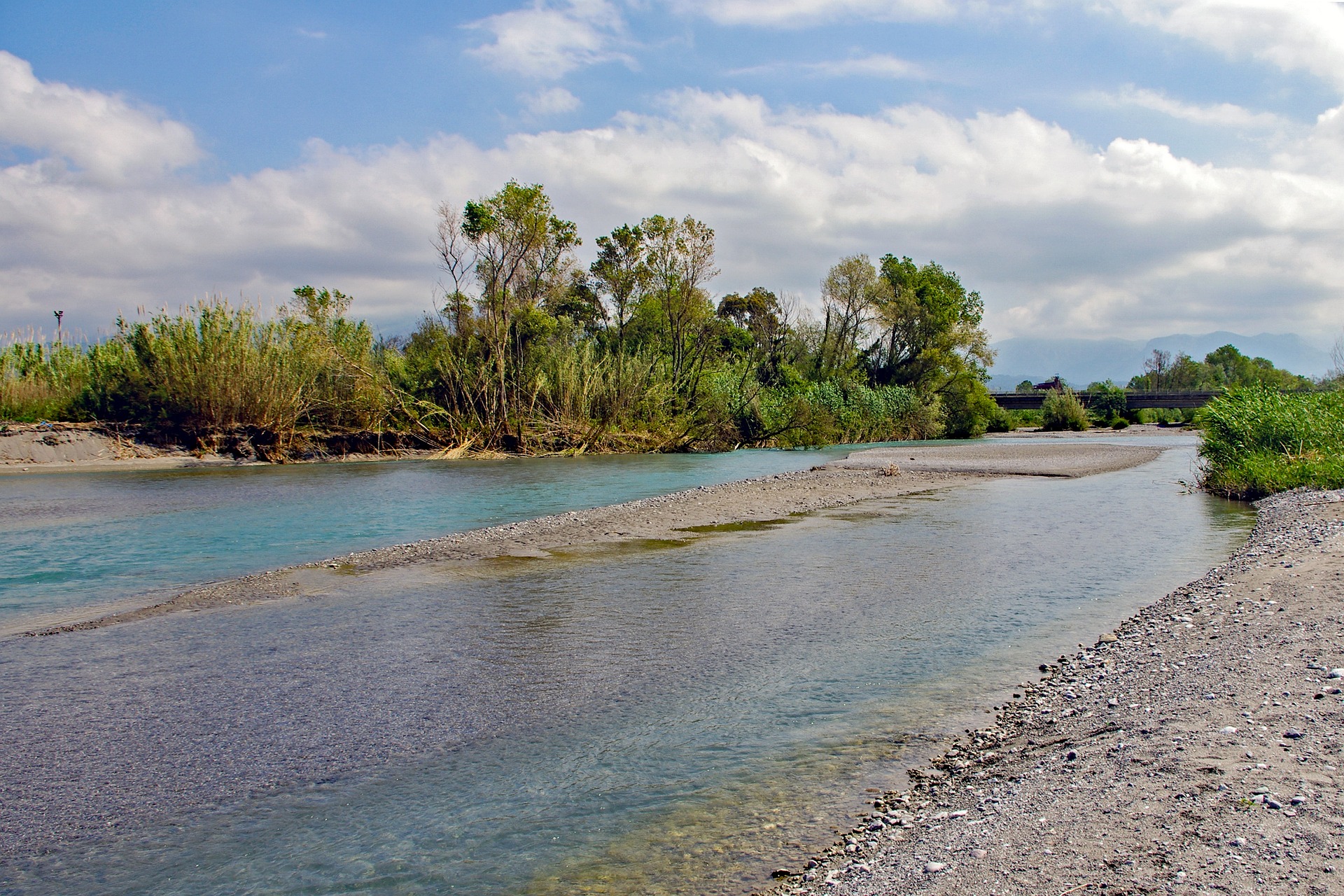Climate and resilience advisory
We work with clients to understand the full spectrum of climate risks—physical, transition, and liability—and translate these into clear insights for strategy and planning. Our focus is not only on assessing vulnerabilities but on building adaptive capacity. By embedding climate considerations into core strategies, our climate advisory specialists help clients to reduce exposure, strengthen social license, and unlock opportunities in innovation, natural capital, and emerging markets.
Climate and natural disaster risk assessment
We have extensive experience in assessing climate and disaster risk across a wide range of contexts and sectors. We have delivered climate risk assessments for multiple local government areas (LGAs), water utilities, and regional organisations, providing a strong evidence base for resilience planning and investment. Our expertise spans the full spectrum of risk types including; heat, drought, bushfire, flood, sea level rise, and severe storm events.
Our approach is grounded in participatory engagement. Our climate risk advisory consultants work closely with clients and stakeholders to present plausible climate futures, drawing on the latest science and modelling. Risks are collaboratively determined by assessing the interaction between hazards, vulnerability, and exposure, considering not only natural and built assets, but also the continuity of services, community health, cultural values, and social wellbeing. By combining rigorous technical analysis with collaborative processes, we ensure that our assessments are credible, transparent, and actionable. The outcomes provide clients with a clear understanding of climate risk, as well as the pathways to reduce vulnerability, strengthen adaptive capacity, and build long-term resilience.
Climate adaptation planning
Our core strength lies in consolidating technical insights from across the physical and social sciences into robust policy, strategy, and decision-making advice. This integrated approach enables organisations to not only understand climate risks, but to translate them into practical pathways that strengthen resilience for assets, services, and communities.
We support clients to assess their existing capacity, capability, and governance frameworks, identifying where systems are well-placed and where they need to evolve. This includes reviewing institutional arrangements, accountability structures, and decision-making processes to ensure they are fit for a climate-resilient future.
Our work identifies relevant climate hazards and their potential impacts, and we design tailored adaptation responses that are both technically sound and operationally feasible. Importantly, we focus on embedding climate considerations into governance and strategy so that adaptation is not treated as a one-off exercise, but as an ongoing process of risk management, investment, and organisational learning.
Disaster response
Along with the broader Alluvium Group, we have extensive experience working in the aftermath of major disasters, including floods and bushfires. Our role has often centred on supporting communities and organisations to navigate the immediate challenges of recovery while laying the foundations for long-term resilience.
Our work combines on-the-ground site assessments with community engagement to ensure that recovery pathways are both technically sound and locally supported. Our disaster response consultants are often involved in the assessment of land, water, infrastructure, and ecosystems, identifying the priority actions required to restore function and reduce future risk. Just as importantly, we engage directly with affected communities, listening to their experiences and aspirations, and incorporating these into rehabilitation and resilience planning.
We have been on the ground in some of the largest flood and fire events, working with communities in difficult and complex circumstances.
Transition strategies
We understand the complex financial, societal, and reputational risks that governments, businesses, and communities face in the transition to a net zero future. These risks include energy reliability challenges, the perception of greenwashing, stranded assets, and vulnerabilities in global and domestic supply chains.
Our climate risk advisory consultants help clients navigate these risks while unlocking opportunities for leadership in decarbonisation. Drawing on expertise across technical, economic, financial, and social sciences, we provide integrated advice that considers the full system of drivers and impacts. This includes stress-testing investment decisions, exploring alternative transition pathways, and aligning actions with emerging disclosure and reporting requirements. We work with clients to build transition strategies that are credible, practical, and future-focused.
Climate-related risk disclosure
We are at the forefront of supporting organisations to meet the emerging mandatory requirements for climate-related risk disclosure. With growing expectations from regulators, investors, and the community, organisations are increasingly required to demonstrate transparency in how they identify, manage, and respond to climate risks and opportunities.
We bring a solid understanding of business sustainability and the practical pathways toward net zero and decarbonisation. Our experience spans governance, finance, technical analysis, and stakeholder engagement, enabling us to provide holistic advice that bridges strategic intent with operational delivery.
Our services include aligning disclosure with global frameworks such as the Task Force on Climate-related Financial Disclosures (TCFD), supporting compliance with emerging domestic regulation, and ensuring reporting processes are credible, defensible, and value-adding. Our climate advisory consultants work with clients to embed climate risk considerations into governance structures and decision-making, so that disclosure is not treated as a compliance burden but as a catalyst for resilience, innovation, and investor confidence.
Industry leadership
Our industry leaders are known for their deep expertise and knowledge in their field. They bring a thorough understanding of industry trends, technologies and best practices.

Jamie Ewert
Jamie is an educator and environmental scientist specialising in climate adaptation. He is particularly focused on systems approaches that integrate nature-based solutions, social resilience and the diversification of infrastructure In response to climate change.<br>Recognised as an effective boundary spanner, Jamie leverages his understanding of different technical disciplines with expertise in design thinking, economics, engagement and strategy to identify opportunities for transformative change.<br><br>He has extensive national and international experience in research (as a knowledge broker), policy, planning and implementation of measures for circular economies, drought resilience, flood resilience and managing urban heat. He is also skilled at managing large, complex projects and is known for his collaborative approach.<br><br>Prior to joining NCC, Jamie was a Principal Consultant at Alluvium Consulting and an Executive at the Cooperative Research Centre for Water Sensitive Cities, based at Monash University. He also has extensive experience in the water sector, having worked for many years at Melbourne Water Corporation and Southern Rural Water, and in environmental policy at the NSW Environment Protection Authority. He maintains close links with research and has presented key note and other presentations at multiple international conferences.

Dr Sasha Courville
Dr. Sasha Courville is a strategy and sustainability leader with over twenty years’ experience in embedding climate and nature into corporate strategies. She led the development and implementation of Bank Australia’s climate strategy with a net zero by 2035 target, was accountable for climate risk and led nature and biodiversity and First Nations recognition and respect strategies at Bank Australia. At NAB, Sasha led the development of its natural capital strategy with NAB Agribusiness, demonstrating that improved management of biodiversity and ecosystem services reduced risk and improved long-term profitability. She also led work to define net zero pathways and targets for key sectors aligned with the Net Zero Banking Alliance. She is a strong advocate for the role that agriculture can play in the transition to a net zero nature-positive economy and was previously a Commissioner for International Agricultural Research, supporting ACIAR’s executive team in integrating change climate mitigation and adaptation as well as women’s economic empowerment as cross-cutting issues in its 10-year strategy.<br><br>Sasha has significant expertise in driving sustainability considerations into global value chains, having served as Executive Director of the London-based ISEAL Alliance, the global association for sustainability standards systems, defining best practice guidelines on standard-setting, audit and assurance and impact measurement. Sasha is currently the Chair of the Aluminium Stewardship Initiative, leveraging multi-stakeholder processes to define what good looks like on climate, nature, circularity and human rights for the global aluminium value chain.<br><br>Sasha is passionate about building the capability of senior leaders and board members to understand and manage risks associated with climate change and nature loss, and to identify commercial opportunities that drive long-term value creation.

Tim Fisher
Associate
Tim is an experienced water, conservation, and natural resource management professional with over three decades of expertise. He joined Alluvium in 2020 and brings a wealth of knowledge in water policy and program management. Prior to joining Alluvium, Tim held various influential roles, including Assistant Secretary in the Department of Agriculture, Water and the Environment, where he contributed to the development of the Future Drought Fund, the National Landcare Program, and emergency assistance for farmers affected by natural disasters. He also led the Murray-Darling Basin Policy branch, playing a key role in the Basin Plan's development and implementation. <br><br>Tim’s career includes significant contributions to Australian water policy, such as serving as Senior Adviser to the Minister for Climate Change and Water during the Rudd-Gillard government, where he helped secure key agreements and reforms in the Murray-Darling Basin. His earlier roles involved consulting and leadership positions at the EPA Victoria and the Australian Conservation Foundation. Tim was recognized with the Centennial Medal in 2001 for his service in water conservation and salinity management.
Projects in Climate and Resilience Advisory

Cascading Climate Risks and Critical Infrastructure Failure

Climate Resilience through Integrated Catchment Management and Ecosystem Based Adaptation in Lao PDR

Economic valuation of ecosystem Valuation for Ayeyarwady River Basin, Myanmar

Urban Heat Resilience: Bridging Science, Policy, and Sustainable Design

Climate risk advisory for hydropower assets in northern India
See more projects in Climate and Resilience Advisory
More Natural Capital and Climate capabilities
Natural capital economics
We are experts in applying best practice frameworks to understand ecosystem services of natural capital and informing strategies to remediate, manage and improve natural capital.
Business case development
We work with our clients to ensure decisions are backed by robust evidence and demonstrate value for money.
Economic valuation of impacts and benefits
Our team are experts in applying both market and non-market valuation techniques across a range of study contexts.
Policy and governance
We are a national leader in the provision of policy, governance, planning and evaluation advice across Australia's land and water resources.